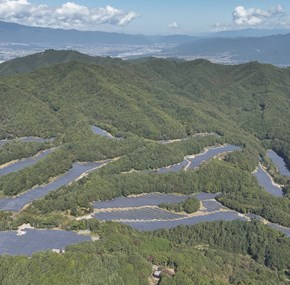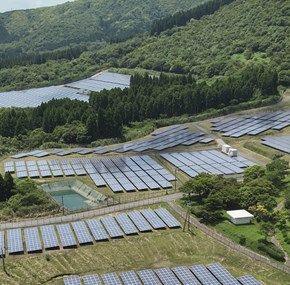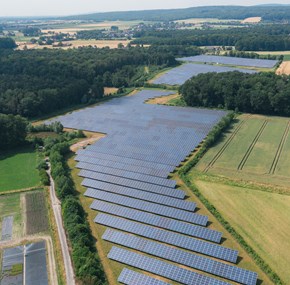Recycling of solar modules – here are the options
Studies show that it takes 1–2 years for a solar park to offset its own climate footprint. But what happens with the actual solar modules when they are no longer operational. Robin Hirschl, Technical Director at Obton Tech, gives you answers here.
How long is the service life of a solar module?
Experience shows that good quality solar modules have a service life of at least 30–40 years. The long lifetime is, in part, due to the fact that it involves relatively simple technology without moving parts and that the majority of the module consists primarily of silicon, glass and metal.
As regards the efficiency of a solar module, there is only a minor deterioration over its lifetime. In Obton's budgets for each solar park, a slight degradition of 0.25% of the solar cell's efficiency is calculated per year. However, our own experience and analyses by Europe's largest institute conducting solar energy analyses, Fraunhofer ISE, tell us that the actual degration can be as little as 0.1%.
In addition, solar cell manufacturers typically offer a performance guarantee of at least 90% after 10 yeras and about 80% after 20–25 years. Real numbers, however, show that solar modules' efficiency declines only 6–8 percent after approx. 25 years.
Are there legal requirements regarding the recycling of solar modules?
As solar cell technology is relatively new, it means that only a limited number have been sent for recycling. However, the need for effective recycling methods will undoubtedly grow tremendously in the decades to come.
The EU has a directive from 2012 concerning the handling of waste from electrical and electronic equipment, which solar modules fall under. That means manufacturers of the solar modules must comply with specific requirements regarding recycling standards, to ensure that the solar modules do not become a burden to the environment when they are no longer in service.
Following the adoption of the directive, we saw a big increase in the development of various technologies for recycling solar modules. And research is still ongoing to reach the full potential for recycling all of the components in a solar module as effectively and inexpensively as possible.
In fact, studies show that both thermal and mechanical recycling methods are generally characterised by up to 98% effectiveness. That means 19.6 kg of material can be recovered from a solar module weighing 20 kg, and they can be used to support the production of new solar modules.
The conclusion in the industry is therefore that it will always be worthwhile investing in solar cells because of the overall environmental benefits they offer.
What will the future benefits look like?
Solar energy is rapidly gaining ground around the globe. Therefore, there will also have to be an equally large industry that is ready to accept the large numbers of solar modules that will inevitably require recycling in the coming years.
It is estimated that this influx will allow for the production of two billion new panels – without having to invest in new raw materials. That means there will be capacity to produce about 630 GW of energy just from recycling previously used materials. At the same time, it will create many more green job opportunities in the recycling sector for solar cells.
Sources:
Lifespan of solar cell modules:
- https://www.greenmatch.co.uk/blog/2015/01/the-lifespan-of-solar-panels
- https://www.ise.fraunhofer.de/content/dam/ise/de/documents/publications/studies/Photovoltaics-Report.pdf
EU directive: Waste Electrical and Electonic Equipment (WEEE) https://ec.europa.eu/environment/waste/weee/index_en.htm
Info on recycling processes for silicon-based and thin-film based solar modules:
- https://www.greenmatch.co.uk/blog/2015/11/disposal-and-recycling-of-photovoltaic-solar-panels
- https://www.greenmatch.co.uk/blog/2017/10/the-opportunities-of-solar-panel-recycling
- https://iea-pvps.org/wp-content/uploads/2020/01/End_of_Life_Management_of_Photovoltaic_Panels_Trends_in_PV_Module_Recycling_Technologies_by_task_12.pdf






